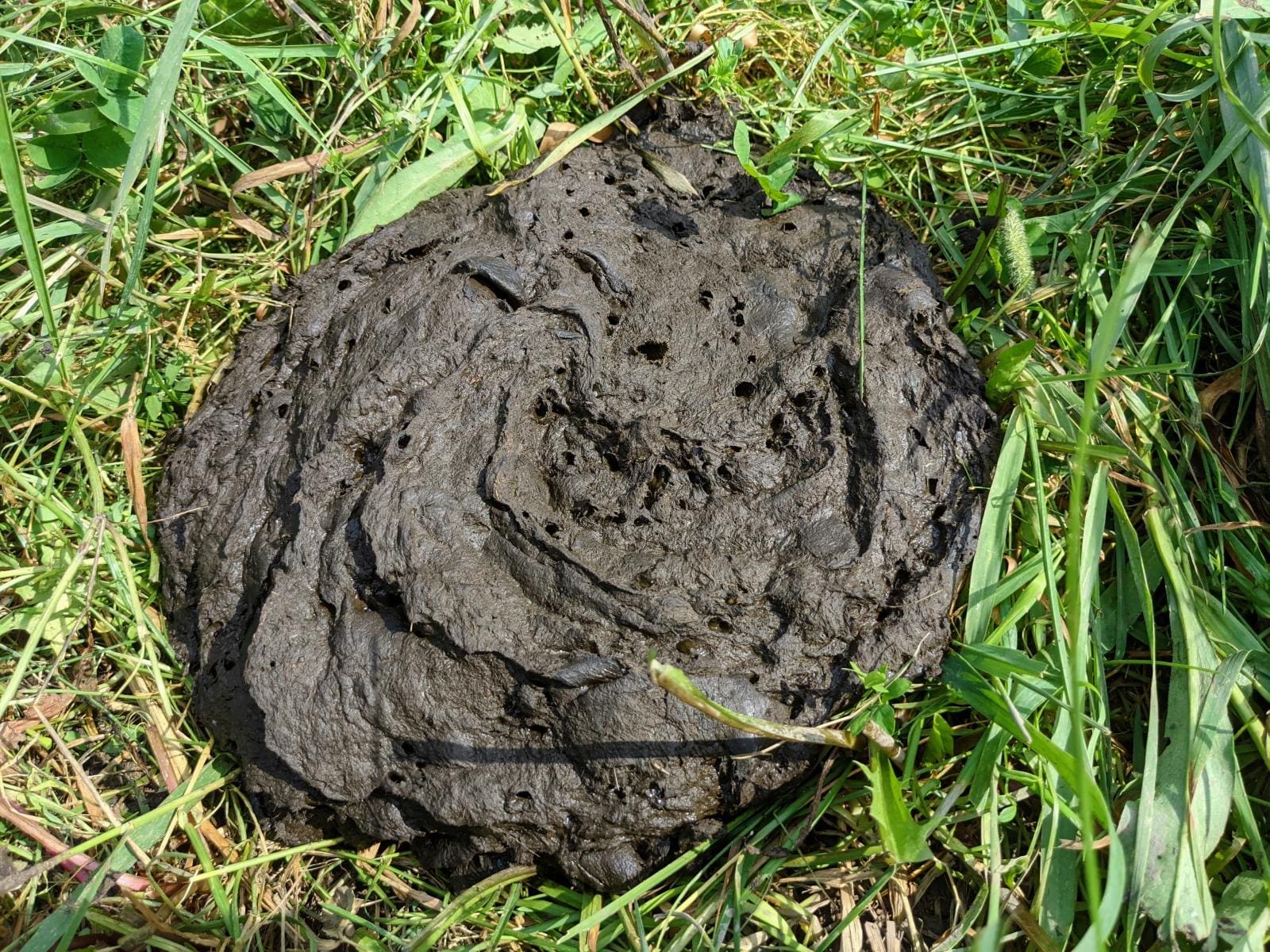No, don’t worry. This isn’t a story about COVID and Ivermectin. This is about Ivermectin, livestock manure, and a curious consequence of the drug’s widespread use.
Background
Ivermectin is a deworming drug. It protects against parasitic nematodes (filarial worms to be specific). It was developed in the late 1970s as a veterinary treatment, but it quickly was found to be a powerful tool for humans against a host of parasite-related diseases. The amount of suffering averted due to Ivermectin’s role in fighting River Blindness and other diseases is incalculable.
As Ivermectin was used, it became apparent that it also was a powerful broad spectrum drug. It proved effective against ticks, lice, and mites. Suddenly, Ivermectin became a wonder drug and it was popping up everywhere. Herds of cattle, sheep, and goats around the world are dosed with it regularly, along with companion animals and pets like dogs and horses. It remains the most widely used drug in its class around the world.
The Other Shoe Drops
But nothing in the natural order comes for free. Something trades off a debit here for a credit there.
Ivermectin doesn’t disappear once it is ingested or injected into a body. It persists, and it comes out in the manure. As a broad spectrum killer of creepy crawly things, it continued to have effects long afterwards. People began to notice that manure piles from livestock just sat there on the ground, untouched.
In the normal course of events, insects — and dung beetles in particular — break manure down and move it in small pieces into storage underground. This is a critical piece of the environmental nutrient cycle. As beetles haul the manure away and carry it below the surface, they facilitate the transfer of the critical carbon, nitrogen, and other elements into places where plants can make use of them. Manure on the surface doesn’t help plants, but manure in the root zone is plant fuel.

It turns out that Ivermectin is also toxic to dung beetles. When exposed to Ivermectin residues in manure, dung beetles experience impairments in their ability to smell (useful when your whole life depends on finding manure) and walk. They also experience paralysis in their antennae which prevent them from mating or signaling to other dung beetles. The drug essentially incapacitates beetles, leading to loss of population due to failure to find food and failure to find mates. For references, read here and here. According to the research I’ve found, Ivermectin is long-lasting in the soil, so these consequences may persist for a long time.
As with other topics, we don’t know all the other things we don’t know. We don’t know what other parts of the biological web are harmed by deworming chemicals. There may be cascading consequences that just aren’t apparent to us yet because we don’t know which other insects to look for. But I suspect that we’re spreading collateral damage to other branches of insect world, and perhaps crossing into other living things.
Regenerative Agriculture Approach
There is growing awareness in the public about the rapid pace of destruction for critical insects. We all know about the collapse of honeybee populations and the dangers facing other pollinators like Monarchs. But are any celebrities going to make documentaries about the destruction of our dung beetle population? If ever there was an insect with a branding problem, it is the dung beetle. They aren’t especially beautiful and their job is unquestionably messy. Not many people are dung beetle activists. But they could use some help, someone standing up for them. Their plight is critical to the basic biological functioning of life on earth.
Farmers can reduce or eliminate their dependence on deworming chemicals by practicing rotational grazing. By rotating animals through different pastures, the livestock avoid exposure to many parasites just by being away from that pasture for a month or two. Parasite life cycles depend on a host animal being there at just the right time, so if we can keep cows or sheep away from a field long enough we can break those reinfection cycles. We already know that moving animals frequently is better for the plants and the land, but it also has tremendous health benefits for the animals themselves.
There’s also a role for serious attention to livestock breeding. For too long, especially in the world of sheep and goats, parasite-prone animals have been propped up by deworming chemicals. This is not a trivial challenge, but for long term success breeders need to select animals that have superior natural resistance to parasites.
At Wrong Direction Farm, we follow the National Organic Protocols for drugs and pharmaceuticals, so we never use Ivermectin or other dewormers on our animals. And we rotate, rotate, rotate. Every day we’re moving this herd here and that flock there. All that movement requires commitment and effort, but we keep up with it because we see results.

Guess what? We have dung beetles. Everywhere you go you’ll find that the cow manure pats are perforated, with beetle tunnels running through them. This is evidence that it is within our grasp to make changes, to build a farm ecosystem that works at every step up and down the various food chains.
It may be hard to love dung beetles the same way we love monarch butterflies, but somehow we need to find conservation approaches that work for all kinds of living things. Even the ones with the dirtiest jobs.
